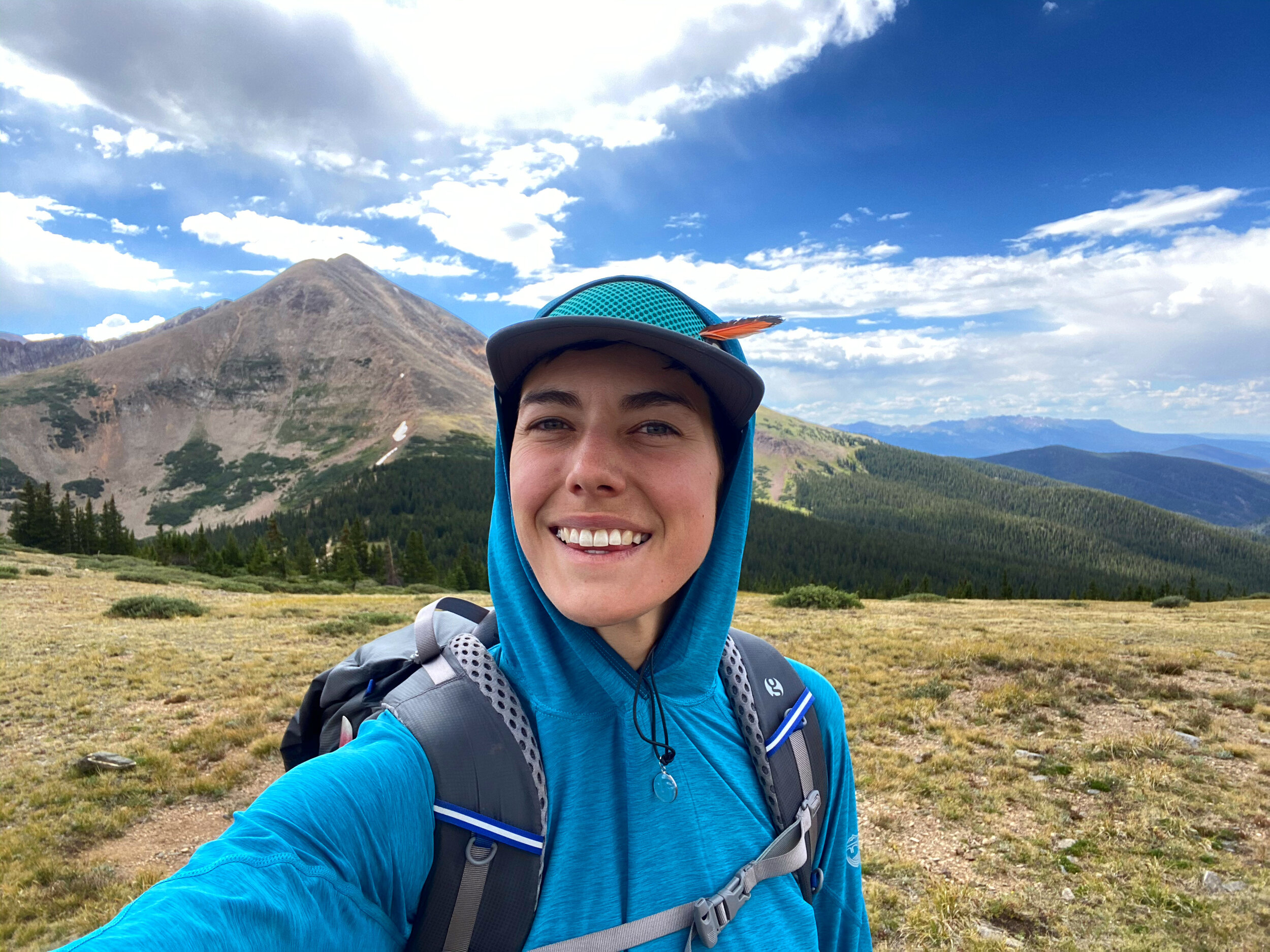Is Lightweight Really All That (and a bag of chips)?
That time I could barely smile on the Colorado Trail because my lips were so chapped; 2020What is the number one reason She Treks is the best choice for your next backcountry adventure?
I outfit you with ultralight gear for an unforgettably lightweight adventure.
But maybe you are still wondering…
Canada’s All Dressed. Arguably the best chip there ever was; Great Divide 2019Is lightweight backpacking really all that and a bag of chips?
My answer is a resounding YES!
It’s everything you need AND the chips (and the chocolate!).
Ultralight doesn’t mean less fun, less food, or less adventure—it just means lighter.
Lighter, smaller, more compact backpacking gear means MORE space for food, greater comfort and freedom of movement; best of all, it means more hiking!
Don’t worry.
Cutting weight doesn’t mean cutting corners on quality; especially because many companies today specialize entirely in producing lightweight gear.
They are constantly perfecting the way they produce packs, tents and sleep systems, while taking the feedback of thru-hikers (aka hardcore gear abusers) deeply into consideration.
Besides, the ideas that influence today’s ultralight backpacking phenomena are actually quite old.
In his Green Belly blog post, “The History of Ultralight Backpacking”, Chris Cage quotes from George Sears’ book Woodcraft:
Go light; the lighter the better, so that you have the simplest material for health, comfort and enjoyment (1888).
Vermont Long Trail 2020How do hikers measure pack weight anyways?
When we first begin stuffing (and I mean stuffing) our packs with all our gear, measuring base weight gives us a good idea of the minimum weight we will carry at any given time on our trip.
Base weight includes everything EXCEPT food, water, and fuel—the consumables—because those items fluctuate over the course of your trip.
So what is a standard base weight? According to the Gossamer Gear blog, “Conventional backpackers simply go by total pack weight, which is typically 35 pounds or more.”
Meaning their base weight is somewhere between 25-30lbs.
It’s a bug net people, I never said I was cool... NOLS expedition, Yukon Territory 2019Stuck. On the Appalachian Trail 2018Some perspective: I typically carried between 60-70lbs on my NOLS mountaineering expeditions, and on my first thru-hike of the Appalachian Trail, my pack often weighed 40lbs coming out of town after a resupply.
How much weight does an ultralight backpacker carry?
Gossamer Gear goes on to explain the difference between “lightweight” and “ultralight” base weight:
A lightweight backpacker (LW) carries a base weight under 20 pounds.
An ultralight backpacker (UL) carries a base weight under 10 pounds.
Hikers tend to get a bit competitive when it comes to base weight, and more traditional hikers might even roll their eyes at the much smaller packs as they fly down the trail.
I’ve found it’s better to just worry about you, specifically what you feel most comfortable carrying into the backcountry.
Happy as a clam on the Colorado Trail 2020, base weight: 15lbBy keeping my base weight below 20lbs, I’ve noticed a few amazing things!
My body feels better, my mind is quieter, and over all my backpacking experience is much more enjoyable.
While I’m a firm believer that less is more and lighter is better…
That one time on the A.T. that I did NOT ACTUALLY hike naked, 2017 That doesn't mean I forgo safety and preparedness.
Proper clothing is 100% necessary.
Before you ask, coffee is essential too—this is not up for discussion!
So what about your trip with She Treks? How heavy will your pack be?
She Treks aims to keep your base weight below 20lbs.
How do I do this?
I outfit you with the best ultralight gear, from brands including, but not limited to, Gossamer Gear, Tarp Tent, Klymit, MSR, Enlightened Equipment, and Thermarest.
I am ALWAYS researching and testing new gear—it’s kind of an obsession of mine—and all the equipment I decide to outfit you with has been thru-hiker tested AND APPROVED.
I got you!
Look what I carried all the way to the top of Mount Massive! Colorado Trail 2020She Treks’ mission is to keep you exploring.
We don’t want pack weight to get in your way!
Haven’t signed up for a trek yet?
For more detailed information on ultralight backpacking, visit:
https://www.gossamergear.com/blogs/our-blog/lightweight-backpacking-conundrum
&
https://www.greenbelly.co/pages/ultralight-backpacking-history








